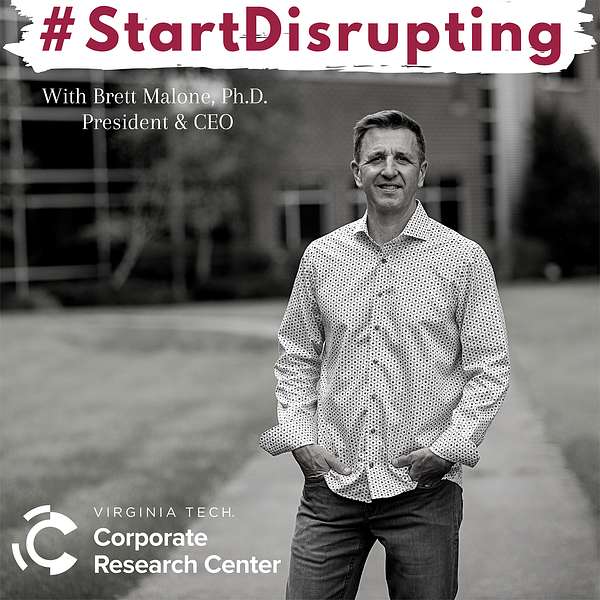
Start Disrupting
Start Disrupting
Big Data Requires Team Science: Learn how to use real-world data from patient records to power virtual clinical trials and mine for new clinical trends
Join us as Alex Hanlon, Ph.D. (Director of the Center for Biostatistics and Health Data Science at Virginia Tech, Professor of Statistics and works closely with researchers on the Health Science and Technology Campus in Roanoke, adjacent to Carilion Clinic and the VTC School of Medicine) and Richard Bendis (Founder, President and CEO of BioHealth Innovation, Inc. and a successful entrepreneur, angel investor, innovation and technology-based economic development leader, international speaker and consultant in the technology and healthcare industries and host of BioTalk) discuss how ‘Big data requires team science.’
Additional show notes:
Who funds the N3C initiative and what goes into it?
The N3C is funded by the National Center for Advancing Translational Sciences (NCATS), which is part of the NIH or the National Institutes of Health. A key component of the initiative is data harmonization, which translates the differing ways that contributing hospitals store patient data into a single, common format to facilitate analyses. Participating sites add (or they will add) data on demographics, symptoms, medications, lab test results, and outcomes over a five-year period. This will enable both short- and long-term study of the impact of COVID-19 on health outcomes.
Who has access to the N3C enclave data?
Data access is open to all approved users, regardless of whether they contribute data. Details for gaining access can be found on the NCATS website (see link below). Researchers can request access only after their home institution has secured a data use agreement with NCATS. For those who are not associated with an institution, they will need to complete their own DUA with NCATS.
https://ncats.nih.gov/n3c/about/applying-for-access
What kind of tools are available in the N3C enclave to support data analyses?
The platform is built to support machine learning and rigorous statistical analyses using Python and R. The idea is to provide the necessary tools to address research questions using contemporary data driven techniques along with classical methods. To tackle such projects with large scale observational data requires collaboration within a team science environment, including expertise in statistics, informatics, medicine, engineering, and so on.
